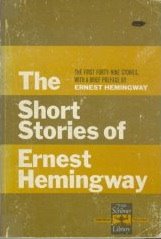 I suspected as soon as the first page that this wasn't my type of book. My suspicions mounted after the first 100 pages did little to pique my interest, and I was certain, absolutely certain, after the 101st page. And yet I read on.
I suspected as soon as the first page that this wasn't my type of book. My suspicions mounted after the first 100 pages did little to pique my interest, and I was certain, absolutely certain, after the 101st page. And yet I read on.Reader's guilt, I call it. It's when you start a book but find that you don't really like it but feel guilty not finishing it. The writing wasn't wretched, the story was intriguing in its own way, and it read fast. So I would feel guilty if I didn't finish it.
So I read. I read like a child eats spinach, force-feeding myself the words like they were good for me, like I had to read them to expel some sort of virus. When really all I wanted was to finish, because the only thing more satisfying than finishing a book you love is finishing a book you hate. I'm done with it! Yes! Celebrations are in order, we must mark this occasion.
All He Ever Wanted was not a bad novel, and for anyone interested, the story is about love. But the kind of love it's about is not what you'd expect. A man of reason, Professor Nicolas Van Tassel, becomes infatuated with a woman, Etna Bliss, one night after helping her aunt out of a fire, and will not stop until he can have her. The lengths he goes to win her love, and then the lengths he goes to keep her from leaving (because she doesn't love him in return), are disturbing and though-provoking in their own way.
Shreve does a great job of weaving together elements of story with philosophy about love, fate, chance, and the sacrifices we make. Still, I couldn't get into it, and only indulged myself because I had no other choice. Well, I could feel guilty, but who wants that.



